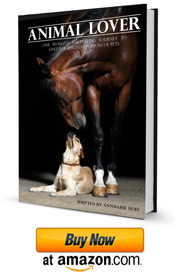My father always came up with horrendous jobs for me that an adult would’ve flatly refused. Especially in the summer, when long, school-less days stretched out in front of me. These jobs usually either scared or bored me, and as such, consistently ended badly.
One summer, my job was to watch the hogs so they didn’t jump into their water tank and drown. A cool thing about this tank was that goldfish lived in it. They were put in to eat the algae and keep the water clean. Hogs can’t sweat (they are without sweat glands). That is why they are associated with mud, which they get into to help disperse the heat and keep cool. In the summer when it got really hot, we would clip misters on the fences so the hogs could stand under the water, happily reveling in their own little water park. Unfortunately it wasn’t always that idyllic. At times, there were too many hogs, and they would push and shove to get under the coolest part of the water. The hogs that didn’t get to stand in the cool misters would become hot, cranky, and desperate. This led to the occasional pig getting really hot and jumping into the water tank. Then the pig sank like a stone.
That was when my job came in; I’d have to grab the pig by the ears and try to pull it out. These weren’t small pigs (they were at least a fifty pounds) so I had to use whatever leverage I could to try to drag it out to safety.
It was so incredibly boring waiting for hogs to get hot, perhaps slower than the proverbial, “watching paint dry”. I couldn’t help but wander off, following a cat that sauntered by, or amuse myself by exploring the plants and flowers nearby.
One day turned out distinctly different. The hog tank was located west of the corncrib. I wandered to the north, and then heard splashing and pigs squealing. I ran back to find a pig floating, dead in the water, and another trying to jump in.
I had to tell my father that I messed up. Of course he became angry. I had recently found out that the hogs we raised were sold for meat, and that they were all going to go to the slaughterhouse to die. So I sassed back saying, “What do you care? They’re going to die anyway!”
I was seven years old when I learned about the eventual fate of these and other farm animals, and it shocked me. I was still too young to understand concept of money and the need for income. Although my parents paid for watching the hog tank, it went into a savings account that I couldn’t withdraw from. I didn’t comprehend that we raised these animals to create an income from selling them.
Although my father, in similar situations, furnace blasted me with obscenities and blame, this time he didn’t. I distinctly remember what he said to me, and I’ve carried it with me all these years: “Everything dies. You and I are going to die some day. Our job on this farm is to raise our livestock to be as happy and healthy as possible and to make sure that they have the best life they possibly can until that day comes.”
My father believed that every animal had its right to live a happy life, and that suffering was optional. That is why he did not sell the male suckling calves for veal; instead he raised them to adults. Veal calves aren’t allowed to consume anything but milk. Most are raised in crates, never touching the ground. Instead, we took our male calves and raised them to full size, finishing them in our eighty-acre timber (the timber was on sand hills next to the Mississippi river. It contained a combination of pastureland and trees, but wasn’t the quality soil to raise corn).
I embraced this edification from my father, and began to view the farm as a modified Noah’s Ark, benefiting the animals. My family and I were caretakers and stewards, responsible for the health and comfort of our farm’s beings.
My family loved our animals. We cared for them implicitly. My mother would talk to the sows she cared for everyday. They would answer her back. I knew from the tilt of the sow’s head how honored she was to be heard, that the conversation was sacred. I’ve always thought you had to be a horrendous person to spend the good part of the day with animals, and be cruel to them. It was our LIFE.
I know many dairy farmers that I met while competing in Dairy Judging in college who spent their whole lives breeding and caring for their dairy herds. I KNOW my life is better, profoundly, significantly better because I have spent time in friendship and camaraderie with animals. Maybe it is selfish, but I would rather have the vibration of these amazing wonderful animals on the planet than to simply have them not exist. What I would like to see is the family farms protected, so that the trend to large industrial farms reversed. At these factory farms many of the workers have no bond with the animals and treat it like an 8-5 job instead of a calling.
Hey You! Don't Miss Out!

When you confirm your subscription, you'll get something special from me!
Enjoy, Ann

